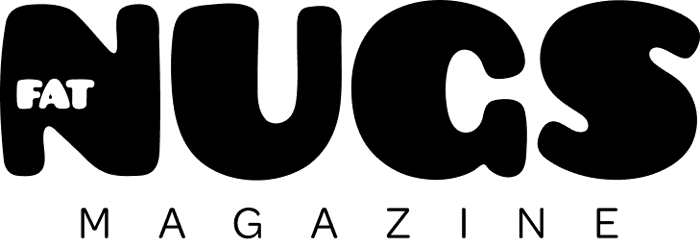The American cannabis industry holds its own weight in terms of volume.
In 2023 the estimated market size was worth approximately $33 billion. Compare that to the American pet food industry, which is valued at $35 billion, and the at-home coffee industry, (coffee purchased in grocery stores or convenience stores) which is valued at $12 billion. As of 2025, 39 states have a medical marijuana program, and 24 states have fully legalized marijuana for adult consumption. Despite the slow-down experienced by many of the western states, the industry is growing overall.
Nevertheless, the industry exists in a precarious legal landscape. The Controlled Substances Act lists marijuana as a Schedule I substance. This group of drugs includes psilocybin and LSD and is reserved for drugs that have no accepted medical use and a high potential for abuse. (For comparison, cocaine and methamphetamine both fall under Schedule II.) In other words, marijuana remains federally illegal, and this can be enforced by the Department of Justice through the Drug Enforcement Agency.
The Legal Precedents
The Cole Memorandum was created during the Obama Administration and successfully held back DEA raids for a time. Authored by Deputy Attorney General James M. Cole, this document listed eight activities that would bring about federal intervention: selling to minors, funneling proceeds to gangs or criminal organizations, and allowing marijuana to cross into states where it was still illegal were among the actions that would spur an unfriendly visit from the DEA. As long as marijuana operators did their utmost to avoid the actions spelled out in the Cole Memo, they were permitted to act without the threat of federal intervention.
In 2014 the first Rohrbacher-Farr Amendment made it through Congress and was signed into law by President Obama. It prohibits the Department of Justice from using any funds allocated to them to interfere with cannabis operators who are adhering to state law. A version of this amendment made it through Congress up through 2021 when President Biden proposed a budget that incorporated the amendment into the body of the text. This is still in effect and is the primary shield for cannabis operators today.
Cannabis Under The Trump Administration
Given the size of the cannabis industry and its uncertain legal footing, it’s fair to wonder how Donald Trump’s second administration will impact the industry as a whole. During his first administration, President Trump had two attorneys general. Jeff Sessions served as the first one, from February of 2017 through November of 2018, and was replaced in early 2019 by William Barr, who served through January of 2021.
In addition to being deeply racist, Jeff Sessions was profoundly anti-cannabis. During his confirmation hearings, Mr. Thomas H. Figures, an African-American prosecutor who had been a colleague of Mr. Sessions testified that Mr. Sessions said he thought the KKK was fine, “until I found out they smoked pot.” Mr. Sessions admitted making this statement but claimed it was a joke. While speaking to the Senate in April of 2016, Sessions made the inflammatory suggestion that “good people don’t smoke marijuana.”
William Barr was more eloquent than Mr. Sessions, but his thoughts were largely similar. He believed that marijuana was a dangerous substance and that legalization had been a mistake. That said, he testified during a Senate Appropriations subcommittee hearing that he favored a more lenient, albeit federalist approach to cannabis. A federalist approach is one that generally respects the rights of the states to make and enforce their own laws. From that statement we can surmise that while Mr. Barr disapproved of the industry, dismantling it wasn’t a priority.
Neither of Trump’s attorneys general were a friend to the cannabis industry, but they had little impact on it. Jeff Sessions rescinded the Cole Memo about a year into his term, but by that point, the industry was already well protected by an iteration of the Rohrbacher-Farr Amendment. In fact, between 2016 and 2020, 10 states fully legalized marijuana and legal sales increased by about $9.5 billion. They may have looked down their noses at us, but they weren’t doing much more than that.
Looking Forward at Cannabis in America
Pam Bondi was sworn in as Attorney General on February 5, 2025 after being confirmed by the Senate by a 54-46 vote. Bondi’s career began around 1991 when she became a prosecutor for Hillsborough County, Florida. In 2010, she ran for Attorney General for the state of Florida and served as the first woman in that role from 2011- 2019. During the last six years, she’s worked as a lobbyist for Ballard Partners. She defended Donald Trump during his first impeachment hearing and led the America First Policy Institute.
Regarding marijuana, Bondi has spoken out against it, but not very loudly. In 2013, while serving as Attorney General for Florida, she asked the state supreme court to block a possible amendment to the state constitution permitting medical marijuana. Her role as lead attorney for the state required her to comment on any proposed amendment that received more than 70,000 signatures. Her job required her to take a side on the issue, and she chose the wrong side of history. In 2015 she stated that she was still opposed to marijuana, but that she would not block a similar amendment from appearing on the 2016 ballot.
Her record is clear that she’s no friend to marijuana, but she doesn’t oppose it as vociferously as many of her colleagues. Rather, Bondi appears to be prioritizing matters relating to immigration enforcement, ending diversity, equity, and inclusion activities, and eliminating drug cartels. In the hours after she was sworn into office, she released 14 memoranda announcing her directives, and marijuana wasn’t mentioned in any of them.
On February 11th Donald Trump announced Terry Cole. This was after Trump’s previous pick Chad Chronister suddenly withdrew his name from consideration. Derek Maltz had been acting DEA Administrator. Cole retired from the DEA in 2020 after serving 22 years in several leadership roles. Since 2020, he’s served as the Secretary of Public Safety and Homeland Security in the state of Virginia.
While visiting the Virginia Cannabis Control Authority – the Virginia state regulatory authority for marijuana, Cole posted a selfie to LinkedIn with a caption that read “Everybody knows my stance on marijuana after 30 plus years in law enforcement, so don’t even ask.”
The hashtags for this post included #justsayno, #disorders, #notlegalfordistribution, #healthissues, #thinblueline, and #backtheblue. The first hashtag references Nancy Reagan’s “Just Say No” campaign, which took an overly simplistic view of drugs and drug abuse. It promoted the idea that peer pressure was the primary reason people sampled drugs and failed to acknowledge the impacts of disease, chronic pain, poverty, or other social issues.
The DEA Under Trump
In May of 2024, the DEA, then led by Anne Milgram, issued a proposed rule to move marijuana from a Schedule I substance under the Controlled Substances Act to Schedule III. In the past, such a process had been led by the DEA, but the Department of Justice was spearheading the possible change for marijuana.
About that change, Derek Maltz said “It’s crystal clear to me that the Justice Department hijacked the rescheduling process, placing politics above public safety. If there’s scientific evidence to support this decision, then so be it. But you’ve got to let the scientists evaluate it.”
There are 3.8 million medical marijuana patients in the United States who evaluate medical marijuana on a regular basis. The effort to reschedule marijuana is unlikely to succeed at this point.
What to Expect Over the Next Four Years for Cannabis in America
Pam Bondi has given the public no reason to suspect that she’s coming for our dispensaries. As head of the Department of Justice, she is more suited and seems more inclined to fulfill other parts of Donald Trump’s vision.
Terry Cole is a different story. He is dangerously misinformed about marijuana and is likely to do whatever he can to impede its progress. He can be expected to sniff out any cannabis operators who are selling to minors, or funneling revenue towards organized crime. Unless laws change, he is effectively prevented from doing much more than that.
Many in the cannabis industry had been eagerly awaiting rescheduling, but that seems unlikely now. Legalization or even safe banking also feel inaccessible. That said, it’s important to keep in mind that the industry is still protected by the inclusion of the Rohrbacher-Farr language in the congressional budget.
Congress has until March 14th to reach a spending agreement for the upcoming fiscal year. While nothing is certain, the most likely outcome is that the industry will continue to enjoy protection from federal agents.
Let’s remember that President Trump’s first term did little to slow the growth of the cannabis industry. Both of his attorneys general found marijuana and its consumers morally repugnant, but states legalized the plant left and right. On the whole, it’s unlikely the industry will face any substantial changes over the coming years.
Bethany Niebauer is the Business and Mediation Columnist for Fat Nugs Magazine and the founder of Axial Resolutions, a mediation firm specializing in dispute resolution for the cannabis industry. With a decade of experience in the cannabis space, she writes about the evolving business and regulatory landscape.




